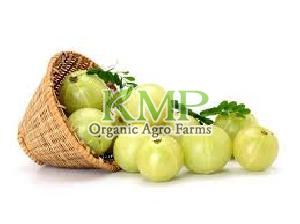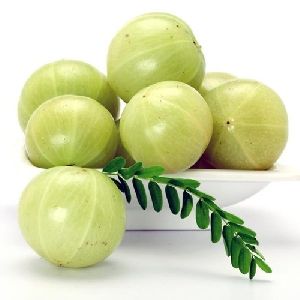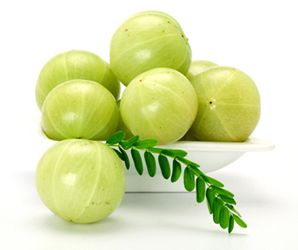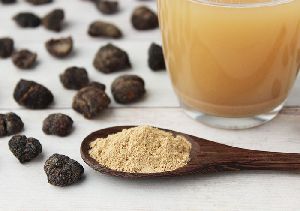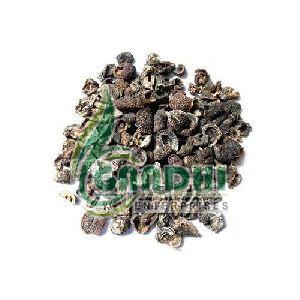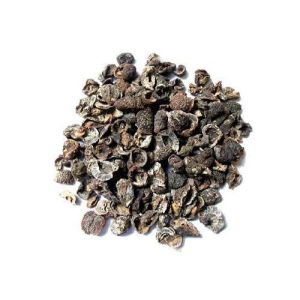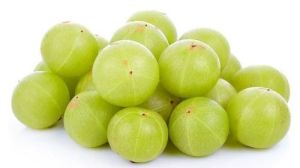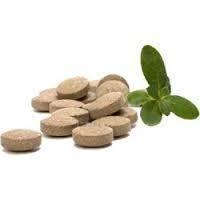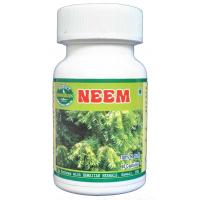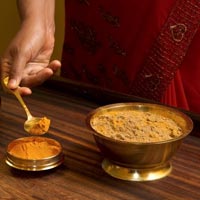Listing ID #3865365
Company Information
Ask for more detail from the seller
Contact SupplierAmla (or Amlaka or Amlaki) is one of the most common ancient Ayurvedic medicines, commonly used to treat a variety of disorders related to the digestive system, the lungs, metabolism, bleeding and even aging.
Most sites that sell Amla products describe the fruit's rich content of vitamin C, The fruit contains the highest amount of Vitamin C in natural form which is often said to be responsible for several of the therapeutic actions of the fruit. They are wrong and have not really done their research and are just repeating (or copying verbatim) incorrect information that was put out almost 50 years ago.
In fact, it has been shown that Amla does not contain any significant amount of vitamin C, but instead other organic acids (such as malic acid and mucic acid) and various common tannoids (small tannin-like molecules) and some unique tannins, one or more of which were mistaken for vitamin C in the initial tests conducted more than 50 years ago. Even so, at the levels described (at about 0.5-0.7% of the fruit pulp), the amount of vitamin C consumed would be small by modern standards.
The dominant active constituent of Amla is a group of tannins derived from gallic and ellagic acids, which make up a large portion of the extractable constituents and from other polyphenols. The fruit also contains flavonoids and kaempferol. The presence of a large proportion of tannins, the other polyphenols and flavanoids in the fruit easily explains many of the reported benefits of Amla, including treatment of respiratory and intestinal disorders, particularly intestinal ulcerations. In addition, polyphenols have been shown to have numerous health protective benefits, including lowering blood lipids and blood sugar, enhancing blood circulation, and blocking the action of carcinogens, which together contribute to the antiaging effect. The apparent superior effect of the mistaken "vitamin C" component is actually the more stable and potent anti-oxidant effect of the tannins, the other polyphenols and flavanoids in the Amla.
A compilation of applications for emblica fruits was carried out by several Ayurvedic writers during the last 25 years.
The main applications are for:
Digestive system disorders: dyspepsia, gastritis, hyperacidity, constipation, colic, colitis, hemorrhoids
Bleeding disorders: bleeding hemorrhoids, hematuria, menorrhagia, bleeding gums, ulcerative colitis
Metabolic disorders: anemia, diabetes, gout
Lung disorders: cough, asthma
Aging disorders: osteoporosis, premature graying of the hair, weakening vision
Neurasthenia: fatigue, mental disorders, vertigo, palpitations
Amla has recently undergone preliminary scientific research, demonstrating invitro antiviral and antimicrobial properties. Experimental preparations have shown potential efficacy against laboratory models of disease, such as for inflammation, cancer, age-related renal disease, and diabetes. A human pilot study demonstrated reduction of blood cholesterol levels in both normal and hypercholesterolemic men.
Amla is also a very fibrous fruit and these fibers are captured in our Organic Amla powder.
Our Organic Amla Powder which has a somewhat spicy taste blends well with soups, salads, sauces, gravies, meat and vegetable pies, rices, pastas, flours, spicy foods, pasta shell fillings and can be added to a variety of recipes. 2 tsps per day is the suggested use of the powder.
Amla is the fruit of Phyllanthus emblica, also called Emblica officinalis. The plant, a member of the Euphorbiaceae, grows to become a medium-sized tree that is found growing in the plains and sub-mountain regions all over the Indian subcontinent from sea level to the foothills of the Himalayan mountains. The fruit is similar in appearance to the common gooseberry (Ribes spp., a type of currant), which is botanically unrelated to Amla. However, due to the similar appearance of the fruit clusters, Amla is usually called the "Indian gooseberry."
Emblica fruits are one of three "myrobalans," a term deriving from Greek for the acorn, which is a well-known astringent used in tanning. In fact, both emblic myrobalans and chebulic myrobalans (Terminalia chebula) are relied upon for their high content of tannins; chebulic myrobalans have long been used for tanning leather; the emblica twig bark and immature fruits are used for tanning. The third fruit, beleric myrobalans, is a close relative of chebulic myrobalans, from Terminalia belerica, also a tanning agent.
When the fruit is dried, the main ingredient, water, is mostly eliminated, and the remaining constituents include roughly:
Carbohydrates 70-75% (fiber, about 17% and sugars/starches/gums, about 25%; polyphenols: 28%)
Minerals: 4-6% (calcium, magnesium, potassium, sodium, zinc, iron, etc.)
Miscellaneous other components: 2.5-3.5%
Protein: 2.5-3.5%
Fats 1.5-2.0%
Residual moisture: 6-9%
Dr. S. Ghosal, at the BHU, published his findings about active constituents of emblica fruits in 1996, in which he reported on the mistaken identification of vitamin C. The following mixture is derived from Amla by a careful process of extraction that prevents breakdown of the tannins. It contains:
Emblicanin-A: 27%
Emblicanin-B: 23%
Punigluconin: 8%
Pedunculagin: 14%
Gallo-ellagitannoids : 18%
Rutin: 10%
The first four ingredients listed are polyphenols (tannins); the next constituent is a combination primarily of gallic acid and ellagic acid, the tannoid components that are linked together to make the other tannins. Rutin is another phenolic compound, a common flavonoid found in many plants and isolated as a natural health care product. Dr. Ghosal describes this extract as having a greater antioxidant potential than vitamin C, while being more stable against heat and oxidation. It can be formulated as a component of internal remedies for health protective effects, especially for cardiovascular risk factors and also into skin creams that are designed to protect the skin from damage due to excess sun exposure.


